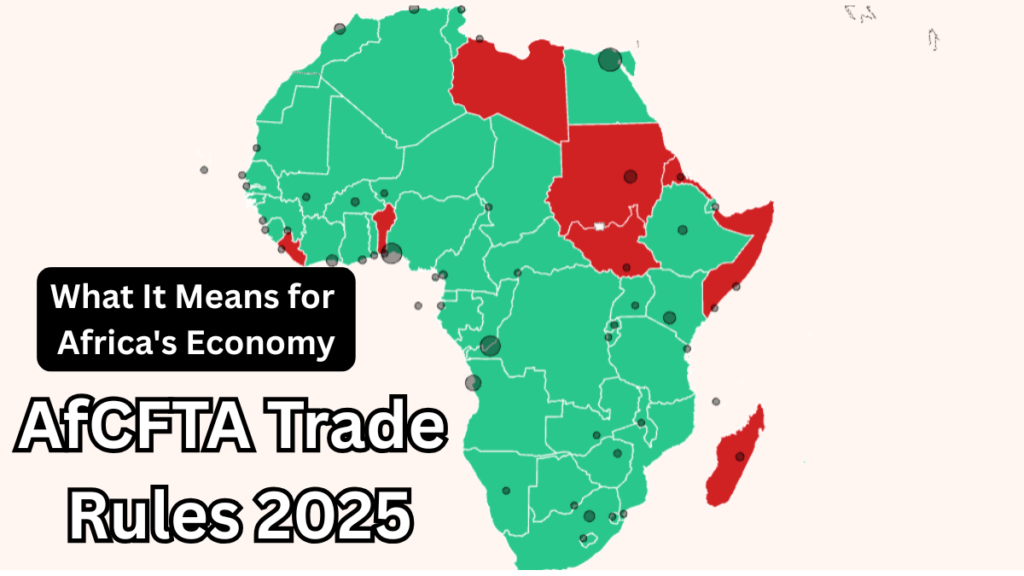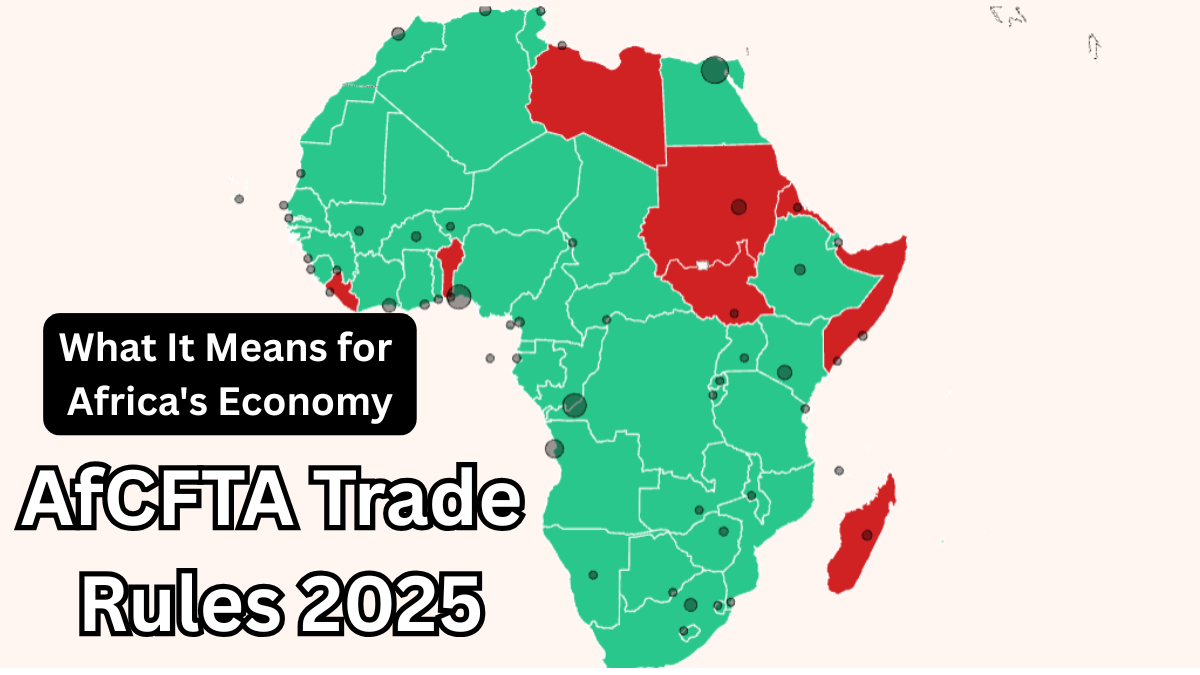The African Continental Free Trade Area (AfCFTA) is transforming the way African nations trade with each other and the world. With the AfCFTA trade rules 2025 set to take effect, countries are preparing for a new era of economic integration, growth, and regional cooperation.
These rules aim to simplify trade processes, encourage local production, and create a seamless market across the continent. But what do they really mean for Africa’s economy and businesses?

Why Are the AfCFTA Trade Rules 2025 Important?
The new trade rules are more than just policies — they are a strategic move toward building a stronger, self-reliant Africa.
Here’s why they matter:
-
Boosting Intra-African Trade: Reducing tariffs and trade barriers will make it easier for businesses to sell products across borders.
-
Encouraging Regional Cooperation: Strengthening economic ties between African nations for mutual growth.
-
Attracting Foreign Investments: Clear trade rules improve investor confidence in African markets.
-
Supporting Local Manufacturing: Prioritizing African-made goods and reducing dependency on imports from outside the continent.
Key Highlights of the AfCFTA Trade Rules 2025
The AfCFTA trade rules 2025 are comprehensive and cover multiple sectors, aiming for a unified trade system.
| Area | What’s Changing |
|---|---|
| Tariff Reductions | Gradual removal of tariffs on 90% of goods traded within Africa. |
| Customs Procedures | Simplified and standardized customs processes to ease cross-border trade. |
| Dispute Resolution | Introduction of a structured mechanism for trade-related conflicts. |
| Rules of Origin | Clear guidelines on determining the origin of goods to prevent exploitation of the agreement. |
| Digital Trade | Promotion of e-commerce and digital platforms to expand market access. |
How Will It Impact Businesses?
For African businesses, the AfCFTA trade rules 2025 are a game-changer.
-
Lower Costs: Reduced tariffs mean lower expenses for importers and exporters.
-
Market Expansion: Businesses can reach new customers in neighboring countries with fewer trade restrictions.
-
Increased Competitiveness: African producers can compete better in both local and regional markets.
-
Opportunities for Startups: Small and medium enterprises (SMEs) can explore new markets without the heavy burden of cross-border regulations.
AfCFTA and Regional Cooperation – A Step Forward
The essence of these trade rules is regional cooperation. By working together, African countries can strengthen their economies, reduce reliance on external markets, and create a sustainable growth model.
This cooperation is expected to:
-
Build stronger trade networks.
-
Improve infrastructure for cross-border transactions.
-
Foster innovation and knowledge-sharing among member states.
Final Thoughts
The AfCFTA trade rules 2025 are more than just a policy update—they are a vision for Africa’s economic future. They pave the way for greater unity, resilience, and prosperity through regional cooperation. For businesses, this is the perfect time to rethink strategies, explore new markets, and leverage the benefits of a truly connected African economy.
FAQs
1. What is AfCFTA?
The African Continental Free Trade Area (AfCFTA) is an agreement between African nations to create a single continental market for goods and services, facilitating free movement of people and investments.
2. How will the AfCFTA trade rules 2025 affect tariffs?
They aim to gradually remove tariffs on 90% of goods traded within Africa, making cross-border trade more affordable.
3. Will small businesses benefit from these rules?
Yes, SMEs will gain easier access to new markets and reduced trade costs, encouraging growth and innovation.
4. How does regional cooperation play a role in AfCFTA?
Regional cooperation ensures that African nations work together to build infrastructure, harmonize trade policies, and foster economic growth across the continent.
Click here to learn more
Sachin is a dedicated writer specializing in education, career, and recruitment topics, delivering clear and actionable insights to empower readers.
